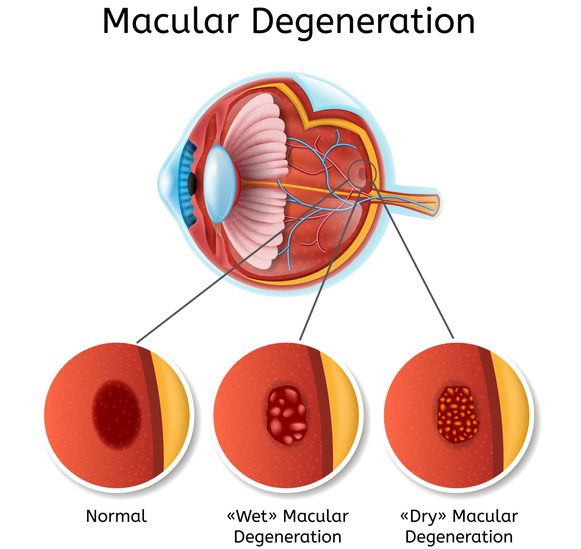Featured

Age-related macular degeneration (AMD) is a disease associated with aging that gradually destroys sharp, central vision. AMD affects the macula, the part of the eye that allows you to see fine detail.
AMD causes no pain. In some cases, AMD advances so slowly that people notice little change in their vision. In others, the disease progresses faster and may lead to a loss of vision in both eyes.

AMD is a leading cause of vision loss in Americans 60 years of age and older. AMD occurs in two forms: wet and dry. With wet AMD, loss of central vision can occur quickly. Wet AMD is also known as advanced AMD. It does not have stages like dry AMD.
Dry AMD occurs when the light-sensitive cells in the macula slowly break down, gradually blurring central vision in the affected eye. As dry AMD gets worse, you may see a blurred spot in the center of your vision. Over time, as less of the macula functions, central vision is gradually lost in the affected eye.
For more information, you can explore the full page here: Eye Center South Macular Degeneration.
Latest Posts
Aabel Roofing: Experienced Roofing Services for Your Home
LazerTown
Fun City Resort: Your Premier Destination for Hosting Memorable Events and Parties in a Stunning Location